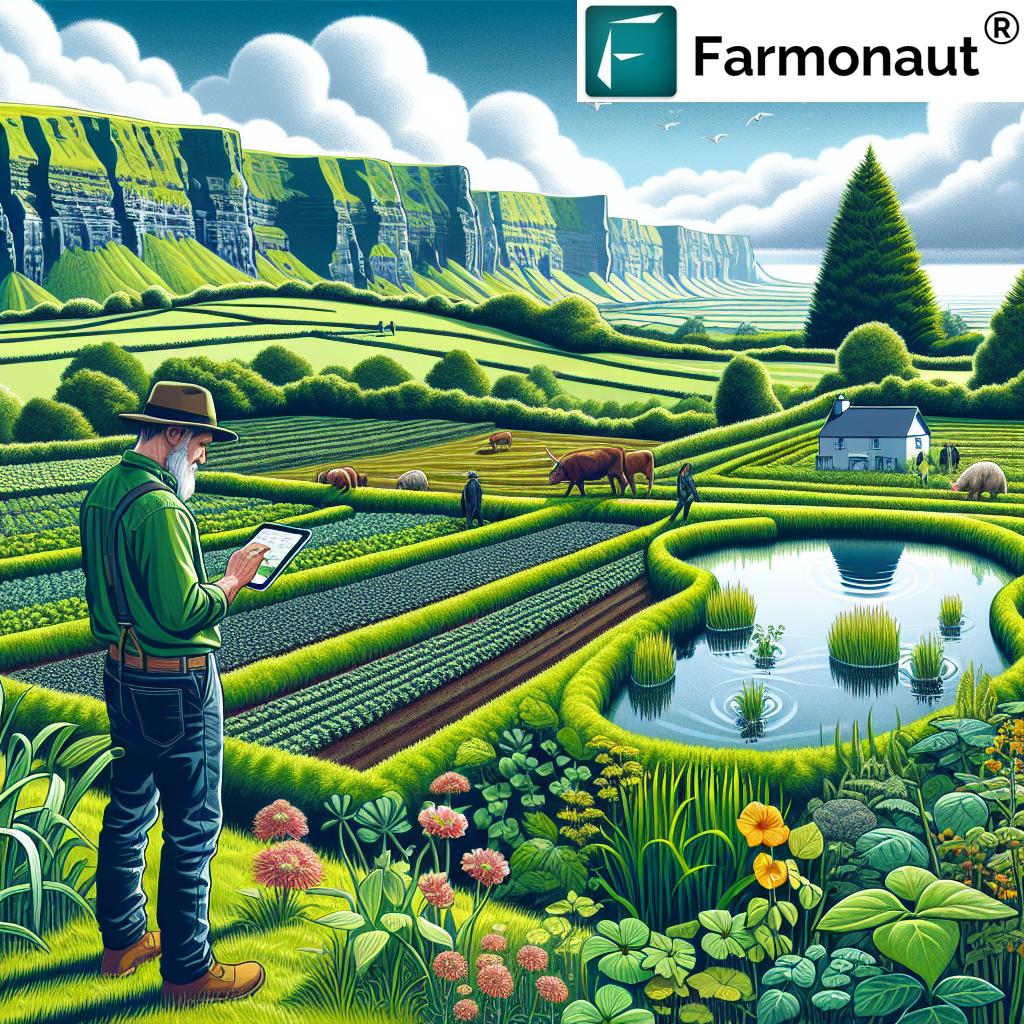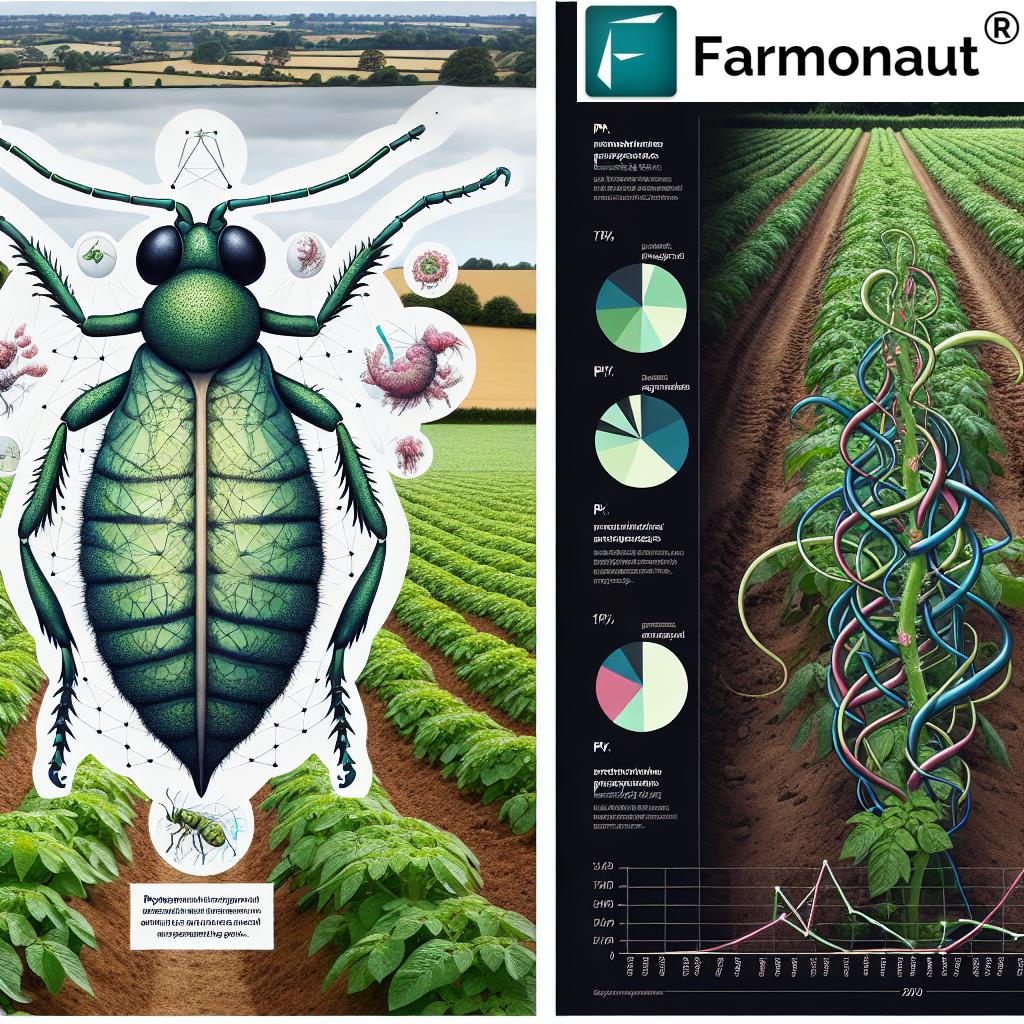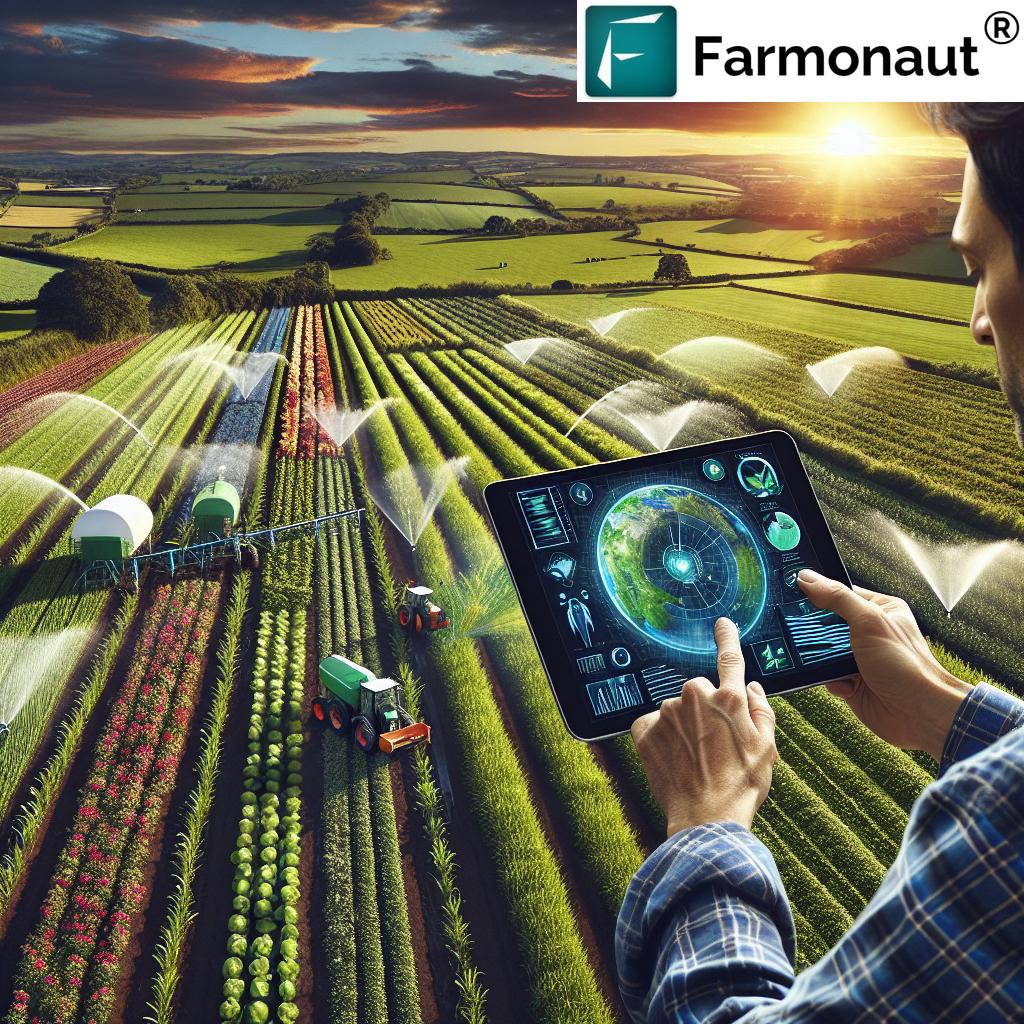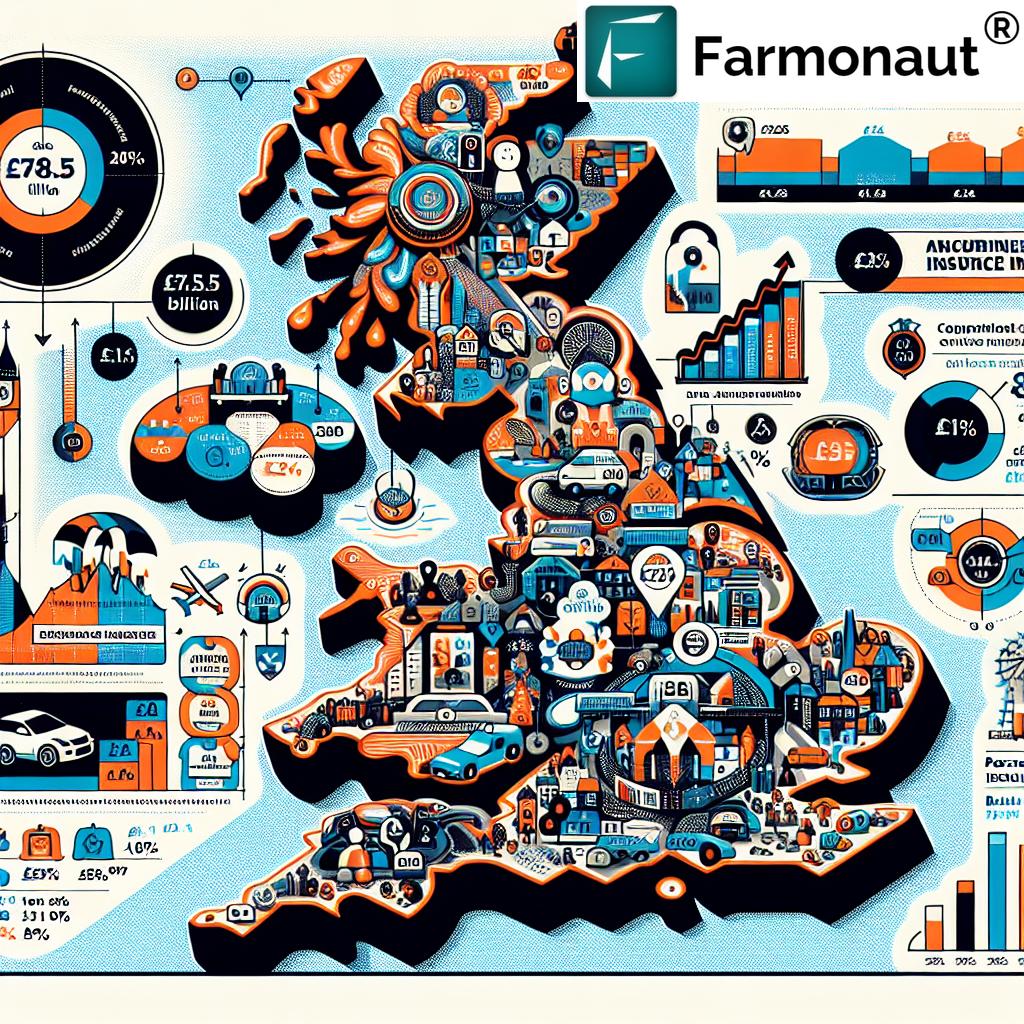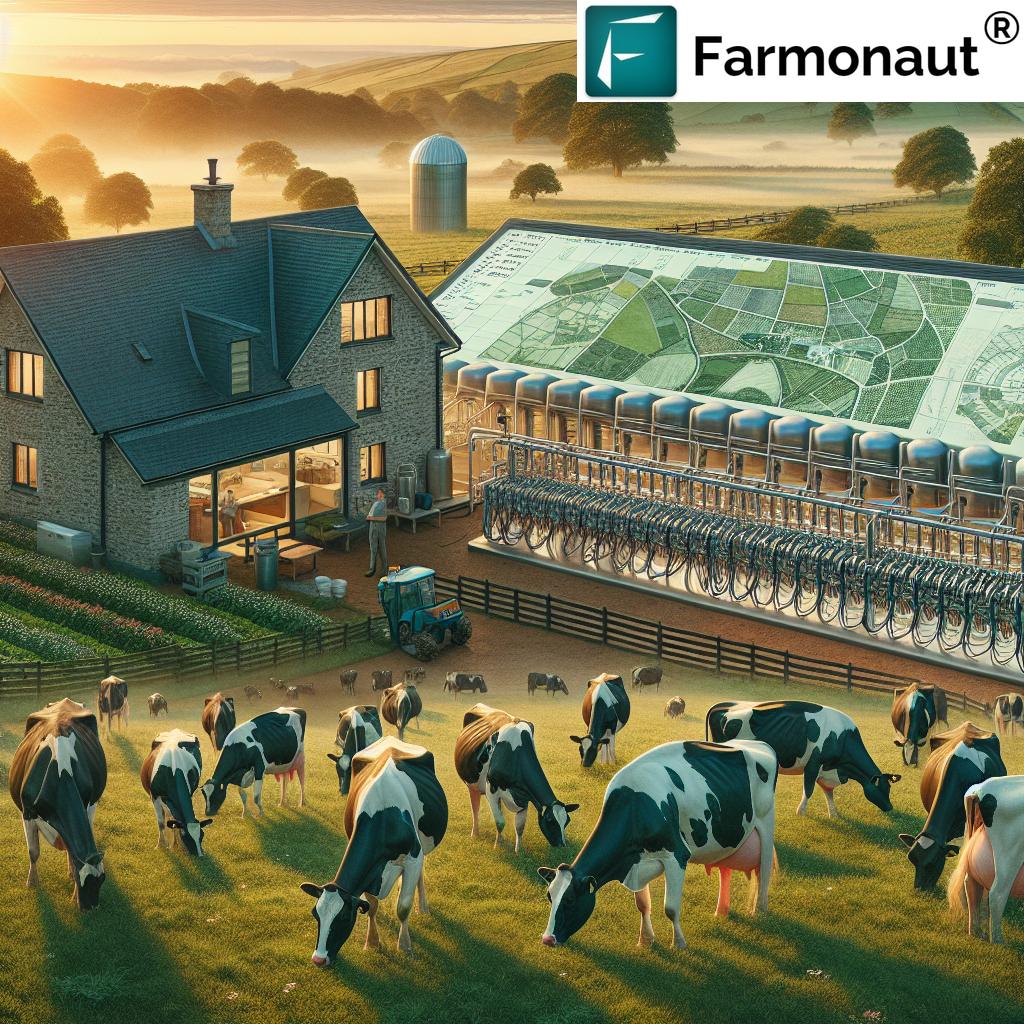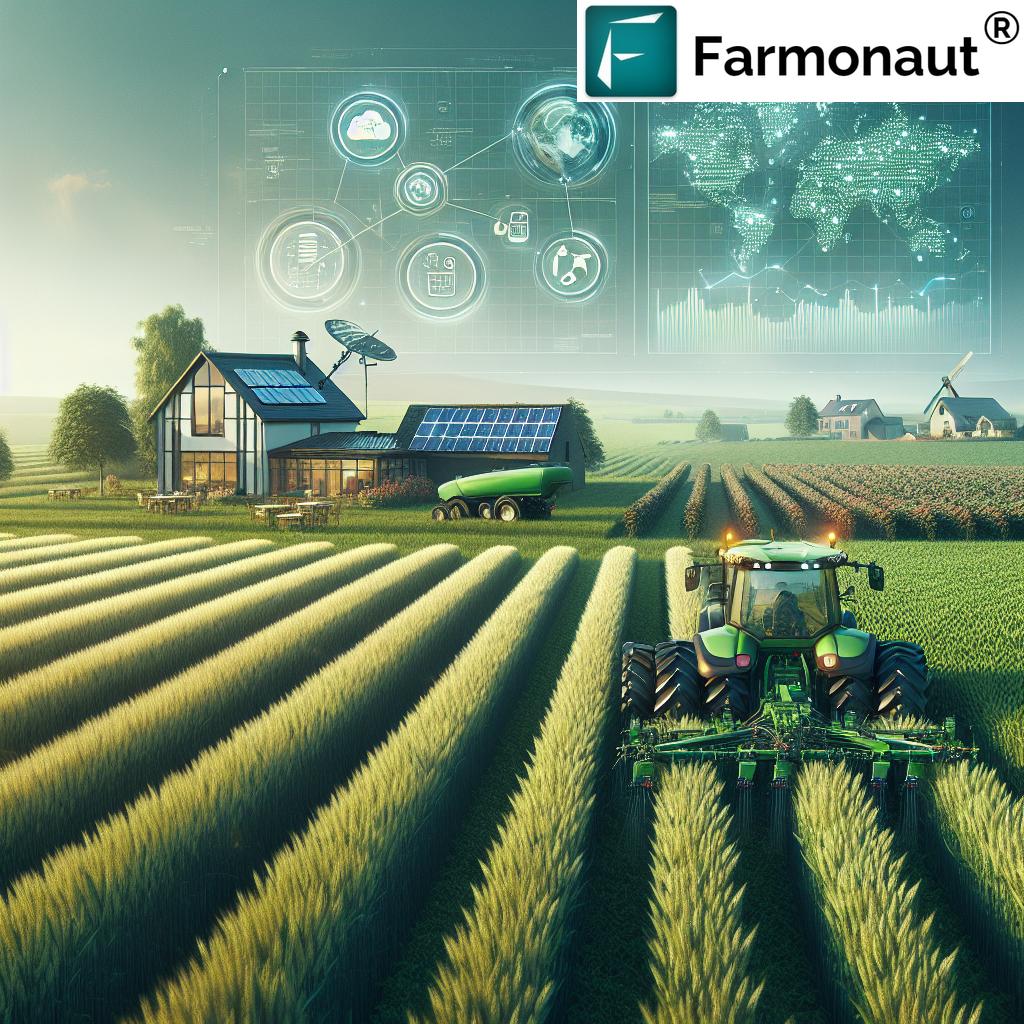Revolutionizing UK Agriculture: How Farmonaut’s Precision Farming Tools Boost Sustainability and Reduce Carbon Footprints
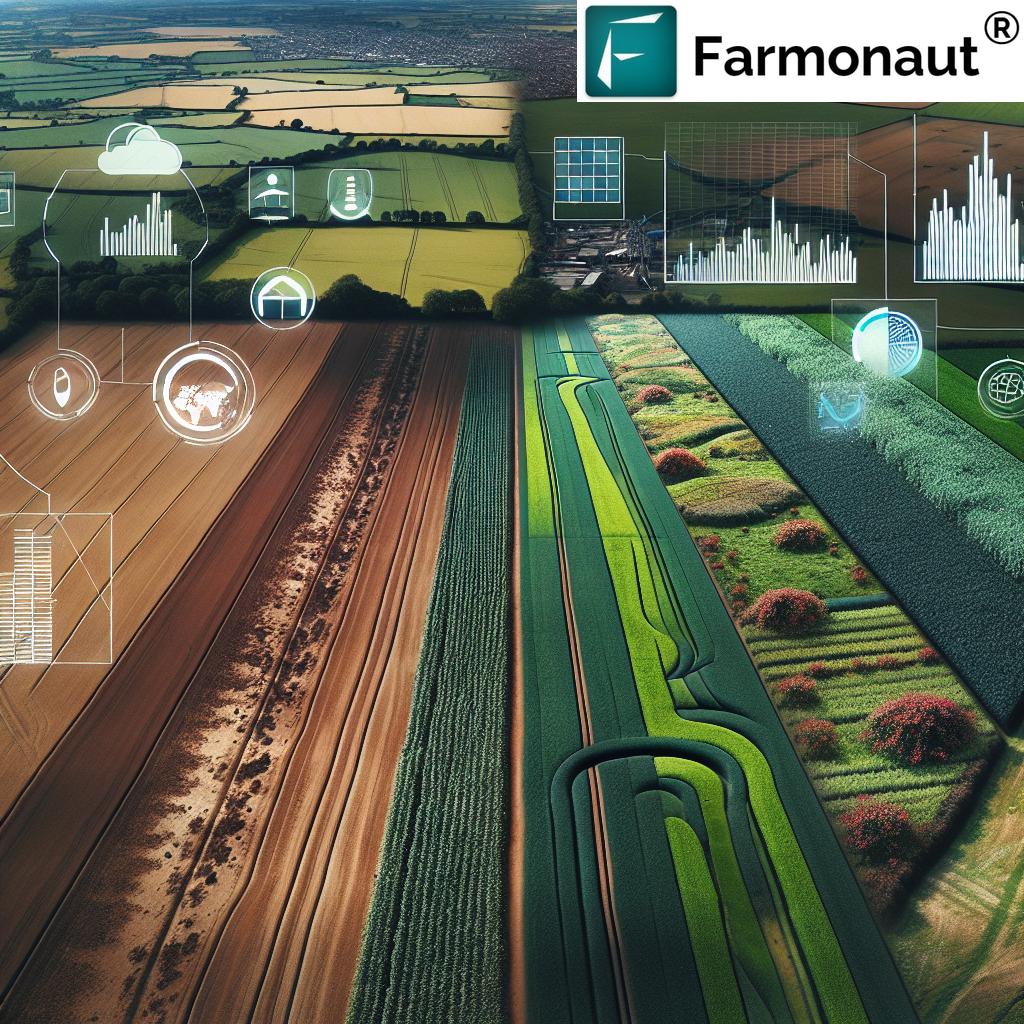
“The UK’s Carbon Week initiative aims to help farmers reduce their carbon footprints and embrace low carbon agriculture practices.”
In the heart of the United Kingdom’s agricultural landscape, a revolution is taking root. As we navigate the challenges of climate change and environmental sustainability, the farming industry is at the forefront of innovation, embracing new technologies and practices to reduce its carbon footprint and promote sustainable agriculture. At Farmonaut, we’re proud to be part of this transformative journey, offering cutting-edge precision farming tools that are helping UK farmers boost sustainability and significantly reduce their carbon emissions.
The agriculture sector in the UK is facing unprecedented challenges. With the growing demand for food production and the urgent need to address climate change, farmers are under pressure to adopt more sustainable practices while maintaining productivity. This is where precision farming and carbon management come into play, offering a win-win solution for both farmers and the environment.
Understanding Carbon Management in Farming
Carbon management in farming is a critical aspect of sustainable agriculture. It involves implementing practices and technologies that reduce greenhouse gas emissions, enhance carbon sequestration in soil, and improve overall farm efficiency. By focusing on carbon management, UK farmers can not only contribute to national and global climate goals but also potentially increase their profitability through improved resource use and reduced input costs.
- Reducing emissions from farm operations
- Enhancing soil carbon sequestration
- Optimizing fertilizer use
- Implementing energy-efficient practices
At Farmonaut, we understand the complexities of carbon management in agriculture. Our suite of precision farming tools is designed to support UK farmers in their sustainability efforts, providing real-time data and insights that enable informed decision-making and more efficient farm management.
The Role of Precision Agriculture in Sustainability
Precision agriculture is at the heart of modern sustainable farming practices. By leveraging advanced technologies such as satellite imagery, AI, and machine learning, precision agriculture allows farmers to optimize their operations, reduce waste, and minimize environmental impact.
Explore our precision agriculture solutions: 
Key benefits of precision agriculture include:
- Optimized resource use (water, fertilizers, pesticides)
- Reduced environmental impact
- Improved crop yields and quality
- Enhanced farm profitability
Farmonaut’s precision farming tools offer UK farmers a comprehensive solution for implementing sustainable practices. Our satellite-based crop health monitoring system provides real-time insights into vegetation health, soil moisture levels, and other critical metrics, enabling farmers to make data-driven decisions that optimize yields while minimizing resource use.
Low Carbon Agriculture Practices in the UK
The UK agriculture sector is increasingly adopting low carbon practices to meet national emissions reduction targets and enhance farm sustainability. These practices not only help in reducing the carbon footprint but also often lead to improved soil health, biodiversity, and farm resilience.
Some key low carbon agriculture practices include:
- Minimum tillage and no-till farming
- Cover cropping and crop rotation
- Precision nutrient management
- Agroforestry and hedgerow management
- Renewable energy adoption on farms
Farmonaut’s digital farming tools support the implementation of these practices by providing farmers with detailed insights into their land and crops. Our AI-driven advisory system, Jeevn AI, offers personalized recommendations for crop management, helping farmers optimize their practices for both productivity and sustainability.
Get started with Farmonaut on your mobile device:
Soil Carbon Sequestration: A Key to Sustainable Farming
Soil carbon sequestration is a powerful tool in the fight against climate change. By implementing practices that increase the amount of carbon stored in soil, farmers can not only reduce atmospheric CO2 but also improve soil health, water retention, and crop productivity.
“Precision agriculture technology and soil carbon sequestration can potentially increase farm profitability while reducing environmental impact.”
Farmonaut’s technology plays a crucial role in monitoring and enhancing soil carbon sequestration efforts:
- Satellite-based soil analysis for carbon content estimation
- Monitoring of vegetation cover and biomass
- Recommendations for practices that enhance soil organic matter
By providing farmers with accurate, real-time data on their soil health and carbon levels, we empower them to make informed decisions that benefit both their farms and the environment.
Agritech Solutions for Carbon Reduction
The agritech sector is rapidly evolving, offering a wide range of innovative solutions to help farmers reduce their carbon footprint. These technologies range from IoT sensors and drones to advanced data analytics and machine learning algorithms.
Farmonaut is at the forefront of this agritech revolution, providing UK farmers with:
- Satellite-based crop monitoring for optimized resource use
- AI-driven advisory systems for precision farming
- Blockchain-based traceability for supply chain transparency
- Carbon footprint tracking and management tools
Our integrated approach ensures that farmers have access to a comprehensive suite of tools that work together to enhance sustainability and productivity.
Explore our API for custom agritech solutions: Farmonaut API
Digital Farming and Carbon Footprint Reduction
Digital farming is revolutionizing the way we approach agriculture, offering unprecedented opportunities for efficiency and sustainability. By leveraging data and technology, digital farming tools enable farmers to make more precise decisions, reducing waste and minimizing environmental impact.
Farmonaut’s digital farming platform provides:
- Real-time crop health monitoring
- Weather forecasting and climate analysis
- Resource management tools for water and inputs
- Carbon footprint calculation and tracking
By integrating these digital tools into their operations, UK farmers can significantly reduce their carbon footprint while potentially increasing their profitability.
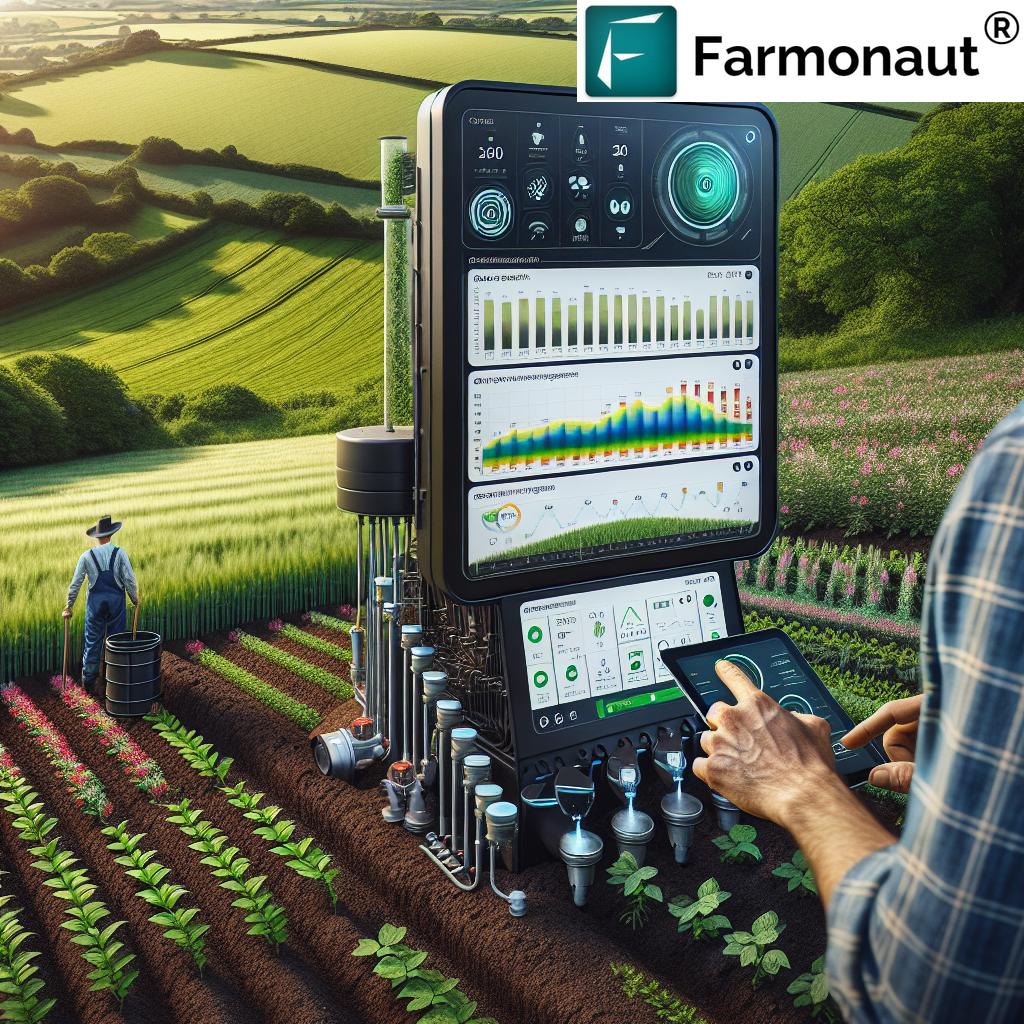
Environmental Impact of Fertilizers and Sustainable Alternatives
Fertilizers play a crucial role in modern agriculture, but their overuse can have significant environmental impacts, including greenhouse gas emissions and water pollution. Understanding and managing the environmental impact of fertilizers is essential for sustainable farming.
Farmonaut’s precision agriculture tools help farmers optimize their fertilizer use by:
- Providing detailed soil nutrient analysis
- Offering variable rate application recommendations
- Monitoring crop nutrient uptake in real-time
- Suggesting sustainable alternatives and best practices
By enabling more precise and efficient fertilizer application, we help farmers reduce their environmental impact while maintaining or even improving crop yields.
Farm Sustainability Strategies for the UK
Developing a comprehensive farm sustainability strategy is crucial for UK farmers looking to reduce their carbon footprint and adapt to changing environmental regulations. Such strategies should encompass various aspects of farm management, from crop production to energy use and waste management.
Key components of a farm sustainability strategy include:
- Energy efficiency and renewable energy adoption
- Water conservation and management
- Soil health and biodiversity enhancement
- Waste reduction and circular economy practices
- Carbon offsetting and sequestration efforts
Farmonaut’s platform supports the development and implementation of these strategies by providing farmers with the data and insights they need to make informed decisions and track their progress towards sustainability goals.
Carbon Reduction Strategies for UK Farmers
To help UK farmers navigate the complex landscape of carbon reduction, we’ve compiled a table of effective strategies, their potential impact, and implementation considerations:
| Strategy | Estimated Carbon Reduction Potential (%) | Implementation Difficulty (1-5 scale) | Potential Cost Savings (£/year) |
|---|---|---|---|
| Precision Agriculture | 10-15% | 3 | 5,000-10,000 |
| Soil Carbon Sequestration | 5-10% | 2 | 2,000-5,000 |
| Efficient Fertilizer Use | 5-8% | 2 | 3,000-7,000 |
| Renewable Energy Adoption | 20-30% | 4 | 10,000-20,000 |
| Crop Rotation and Diversification | 3-5% | 2 | 2,000-4,000 |
This table provides a quick reference for farmers looking to prioritize their carbon reduction efforts. The potential cost savings highlight the economic benefits of adopting these sustainable practices, demonstrating that environmental stewardship can go hand-in-hand with improved farm profitability.
The Role of Technology in Agricultural Emissions Reduction
Technology plays a pivotal role in helping farmers reduce their agricultural emissions. From precision application of inputs to advanced monitoring systems, technological solutions are enabling farmers to optimize their operations for both productivity and sustainability.
Farmonaut’s technology contributes to emissions reduction in several ways:
- Optimizing resource use to minimize waste and excess emissions
- Providing data-driven insights for more efficient farm management
- Enabling precise monitoring of farm activities and their environmental impact
- Supporting the implementation of sustainable farming practices
Discover how our API can integrate with your existing farm management systems: API Developer Docs
The Future of Sustainable Agriculture in the UK
As we look to the future, sustainable agriculture will play an increasingly crucial role in the UK’s efforts to combat climate change and ensure food security. The integration of advanced technologies, coupled with a growing awareness of environmental issues, is set to transform the agricultural landscape.
Key trends shaping the future of UK agriculture include:
- Increased adoption of precision farming techniques
- Growth in regenerative agriculture practices
- Development of climate-resilient crop varieties
- Integration of AI and machine learning in farm management
- Expansion of vertical farming and urban agriculture
At Farmonaut, we’re committed to staying at the forefront of these developments, continuously evolving our platform to meet the changing needs of UK farmers and support their journey towards sustainability.
Conclusion: Embracing a Sustainable Future for UK Agriculture
The path to sustainable agriculture in the UK is clear, and the tools to achieve it are within reach. By embracing precision farming technologies, implementing low carbon practices, and leveraging data-driven insights, UK farmers can significantly reduce their carbon footprint while maintaining or even improving their productivity and profitability.
Farmonaut stands ready to support UK farmers on this journey, offering cutting-edge precision farming tools that make sustainability not just achievable, but also economically viable. From our satellite-based crop monitoring to our AI-driven advisory systems, we provide the technology and insights needed to revolutionize farming practices and drive the industry towards a more sustainable future.
As we move forward, the collaboration between farmers, technology providers, and policymakers will be crucial in realizing the full potential of sustainable agriculture. By working together and leveraging the power of innovation, we can create a resilient, productive, and environmentally friendly agricultural sector that meets the challenges of the 21st century head-on.
Join us in revolutionizing UK agriculture. Explore Farmonaut’s solutions today and take the first step towards a more sustainable and profitable farming future.
FAQs
- How does precision agriculture contribute to carbon footprint reduction?
Precision agriculture uses technology to optimize resource use, reducing waste and minimizing emissions from excess inputs like fertilizers and fuel. - What are some quick-win strategies for UK farmers to reduce their carbon footprint?
Implementing cover crops, optimizing fertilizer use, and improving energy efficiency are some quick and effective strategies. - How can Farmonaut’s tools help in implementing sustainable farming practices?
Farmonaut provides real-time data on crop health, soil conditions, and resource use, enabling farmers to make informed decisions that support sustainability. - What role does soil carbon sequestration play in sustainable agriculture?
Soil carbon sequestration helps remove CO2 from the atmosphere, improves soil health, and enhances crop productivity, making it a key strategy for sustainable farming. - How can UK farmers balance productivity with sustainability goals?
By adopting precision farming techniques and data-driven decision-making, farmers can optimize their operations for both yield and environmental impact.




